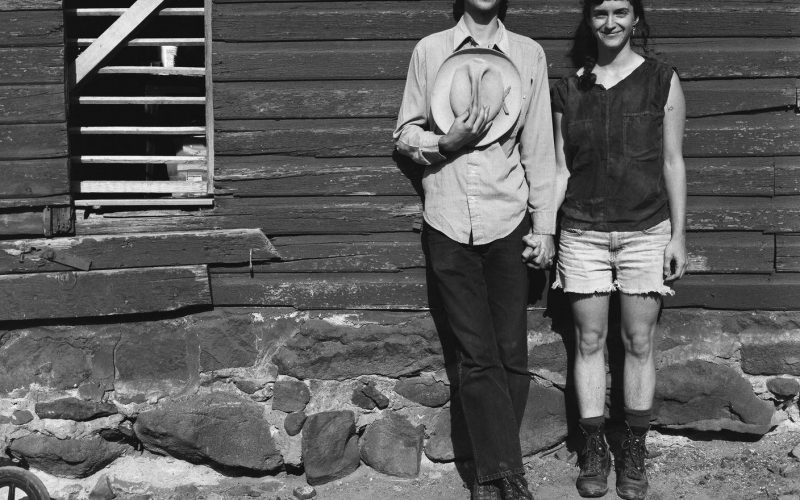They all caught the bug at someone’s knee.
Donna Mulhollan played old-school country music with her dad.
Her husband Kelly listened to the stories told by old men waiting for the mail at the general store and post office in Larue, a community later swallowed up by Beaver Lake.
Steve Green remembers getting kicked out of square dances in rural Missouri because he wasn’t big enough or old enough to dance.
Aviva Steigmeyer also remembers square dances and what she calls “old-time music” heard and learned in Washington state.
And her partner, Roy Pilgrim, spent his youth hanging out at Donna and Kelly Mulhollan’s house with their son — and their music.
All those wildly varied roads come together Jan. 19 in a performance called “Songs of the Ozarks: Old Time/New Time.” The goal is to perhaps define how the old-time music Steigmeyer and Pilgrim play as the Ozark Highballers complements the folk music about old-timers that the Mulhollans write and perform as Still on the Hill. Or it might be the other way around. And they all hope audiences will get up and dance when Green calls, because the sharing of community is the common thread in what they all do.
When the Mulhollans started playing together 22 years ago, their repertoire was largely cover songs performed in what Donna calls “honky-tonks.” She had written a song or two — including one about an old man in Russellville who carved fiddles, a song Kelly says “knocked me down” and told him he’d found his soul mate.
Donna thinks it was listeners hungry for connections to their roots that made their storytelling songs about Ozark people popular. And as that popularity grew, so did the number of stories that came to them for retelling. It was a decade or so ago that they released their first album of Ozark stories — simply titled “Ozark” — and created a model of playing free concerts and giving away free CDs using support from arts organizations to fund the endeavors.
About that same time, across the country in Washington state, Aviva Steigmeyer started playing a “pretty specific” genre commonly called “old-time music.” It’s best defined as songs from the 1930s or earlier, generally accompanied by fiddle, banjo and/or guitar.
“It’s not that big on the national scene,” Roy Pilgrim admits, saying if he had to name a better known example, he’d say the early songs of Old Crow Medicine Show. “But we don’t write music, we find and play old music.”
Another common thread is that “old-time music” wasn’t intended for listening but for dancing — and that’s where Steve Green comes in, the “third leg on a three-legged stool of traditional arts,” he says. Green is a “traditional percussive dancer” who does the flat-footed dancing called “jiggin’” in the Ozarks. It has roots in Europe — think of Irish dancers — influenced by African rhythms shared by people brought to America as slaves.
A seed was planted at the Fayetteville Roots Festival a couple of years ago to bring all those elements together in one performance, the one scheduled for Jan. 19 at the Faulkner Performing Arts Center at the University of Arkansas. In the first set, Still on the Hill and the Ozark Highballers will swap songs. In the second set, Green will talk about the role of dance, call a tune or two for eight dancers to demonstrate, then invite the audience to dance along. The evening will end with a sing-along, much as it might have in the days when communities gathered for barn dances.
Community, the five agree, is the cornerstone of their variations on a theme.
__
FAQ
‘Songs of the Ozarks’
WHEN — 7:30 p.m. Jan. 19
WHERE — Faulkner Performing Arts Center on the University of Arkansas campus in Fayetteville
COST — $10-$20
INFO — 575-5387



